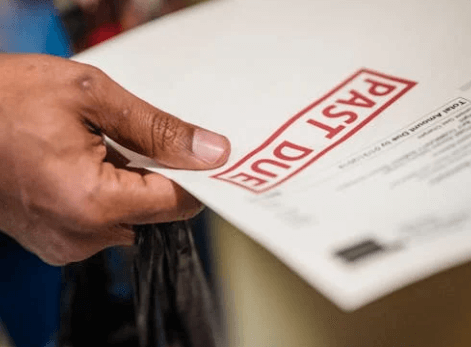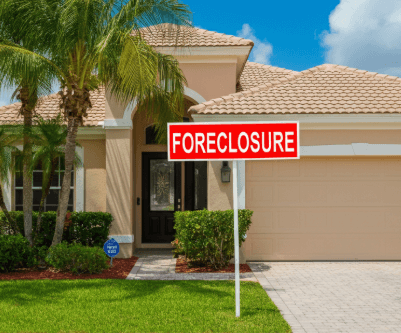Foreclosure is challenging, and understanding the timeline can help homeowners prepare better. If you’re wondering how long it takes to foreclose on a house in Cape Coral, FL, the process typically spans several months to over a year, depending on factors like lender actions, court schedules, and homeowner responses. In South Florida, foreclosure filings have risen by 5% recently, with over 2,800 cases reported in a single quarter, showing how common this issue has become. Steve Daria and Joleigh, renowned real estate investors and cash home buyers, have helped countless homeowners easily navigate these tough situations. Their expertise ensures a quick, hassle-free solution for those looking to sell their homes fast and avoid the drawn-out foreclosure process. If you’re facing foreclosure and need guidance, now is the time to act. Book a free discussion with Steve Daria and Joleigh today to explore your options and take control of your situation. Understanding how long it takes to foreclose on a house in Cape Coral, FL, is the first step toward making informed decisions.
Key Points
- General timeline for foreclosure: The foreclosure process in Cape Coral, FL, often takes several months or over a year to complete. This depends on factors such as lender actions, court backlogs, and the homeowner’s response time to notices.
- Stages of foreclosure: The process begins with a notice of default, followed by several legal steps, including a notice of sale and auction. Homeowners typically have 90 days to address the default before the property is auctioned.
- Impact of local trends: Foreclosure trends in Cape Coral, FL, show a rise in cases, with South Florida recording over 2,800 filings in a single quarter recently. This highlights how delays may vary due to increasing demand in legal processing.
- Factors influencing timelines: The specific circumstances of the homeowner, such as attempts to reinstate the mortgage or work out payment plans, can affect how quickly foreclosure progresses. Additionally, some cases are expedited if there are no legal disputes.
- Alternatives to foreclosure: Homeowners looking to avoid the drawn-out process can explore quick-sale options with experts like Steve Daria and Joleigh. These professionals offer cash-buying solutions designed to help homeowners bypass foreclosure entirely.
What is the foreclosure process in Cape Coral, Florida?
The foreclosure process in Cape Coral, Florida, can be a lengthy series of legal steps that begin when a homeowner fails to make loan payments on time.
First, the lender sends a notice of default, alerting the homeowner that they are behind on payments.
If the payments aren’t brought up to date, the lender may file a lawsuit, initiating the foreclosure proceedings.

During this time, homeowners can resolve the issue by paying the owed amount or negotiating with the lender.
If no resolution is reached, the court may schedule an auction where the property is sold to recover the debt.
The entire process to foreclose on a house in Cape Coral, FL, can take anywhere from a few months to over a year, depending on factors like court schedules and homeowner responses.
Homeowners must explore all options early, such as modifying the loan or selling the house, to avoid foreclosure.
Understanding each step of this process can help you take control of your financial situation.
Get An Offer Today, Sell In A Matter Of Days…
How long does it take to foreclose on a house in Cape Coral, Florida?
The time it takes to foreclose on a house in Cape Coral, FL, can vary widely based on different factors.
Typically, the process can last anywhere from a few months to over a year.
Florida uses a judicial foreclosure process, meaning the lender must file a lawsuit and go through the court system, which can add time.
The timeline also depends on the homeowner’s actions, such as whether they respond to the lawsuit or seek alternatives like loan modifications.
If the court rules in favor of the lender, a foreclosure sale is scheduled, but delays can happen due to court backlogs or legal disputes.
External factors, like the homeowner filing for bankruptcy, can also slow the process further.
To avoid or shorten the process, homeowners should act quickly to understand their options, such as selling the property or negotiating with the lender.
Being proactive can help ease the stress and give homeowners more control over their situation.
Are there any alternatives to foreclosure in Cape Coral, Florida?
- Loan Modification: Collaborate with your lender to adjust the terms of your loan. This might include lowering your monthly payments or adjusting your interest rate to make it easier for you to catch up on your debt.
- Selling Your Home: If you’re unable to keep up with payments, selling your home might be a good option. You can use the proceeds to pay off the mortgage and avoid foreclosure altogether.
- Short Sale: A short sale allows you to sell your home for less than the amount you owe on it, with the lender’s approval. While it won’t cover the full debt, it can help you avoid foreclosure and its impact on your credit.
- Deed in Lieu of Foreclosure: Transfer your property to the lender to have your remaining debt forgiven. It’s a way to avoid the lengthy foreclosure process, but it depends on the lender’s agreement.
- Repayment Plan: Some lenders may offer repayment plans to help you catch up on missed payments over time. This option lets you keep your home while making manageable payments and getting back on track.

What are the financial consequences of foreclosure for homeowners?
Foreclosure can have serious financial consequences for homeowners.
When you foreclose on a house in Cape Coral, FL, it negatively impacts your credit score, often dropping it by hundreds of points.
This could complicate your ability to secure loans, credit cards, or even rental agreements down the line.
Additionally, a foreclosure stays on your credit report for up to seven years, leading to long-term financial challenges.
Some homeowners may also face a deficiency judgment if the home’s selling price doesn’t cover the full mortgage amount, requiring them to pay the difference.
Losing a home also means losing any equity built up over time, which can be a substantial financial setback.
Future mortgage lenders may see foreclosure as a red flag, making it difficult to secure a new loan.
Homeowners need to understand these outcomes and seek alternatives to minimize the financial impact.
Proactively planning today is key to securing your financial future.
How can I determine the market value of my house during foreclosure?
- Hire a Professional Appraiser: A licensed appraiser can accurately estimate your home’s value. They’ll evaluate the condition of your property and compare it to similar homes in your area to determine its worth.
- Check Online Real Estate Tools: Websites like Zillow and Redfin can help estimate your home’s value. These tools use nearby sales and market data, but they may not always be precise.
- Look at Recent Sales in Your Area: Discover recently sold homes in your neighborhood with features comparable to your property. Comparing these properties can help you understand what buyers might pay for your house.
- Consult a Real Estate Agent: A local real estate agent can offer a Comparative Market Analysis (CMA), a detailed report that highlights the selling prices of similar homes in your area. This analysis helps you accurately assess how your property measures up in the current market.
- Review Your Property Tax Assessment: Your property tax bill includes an assessed value for your home, which can give a general idea of its worth. While it may not always reflect the exact market value, it’s still a helpful starting point.
- Consider Market Trends: Check if home prices in your city are going up or down. Knowing the current market trends can provide context for your home’s value during foreclosure.
- Inspect Your Home’s Condition: The state of your home plays a big role in its market value. If repairs or updates are needed, this might lower the price, so it’s important to factor the condition into your estimation.
What should I prepare before listing my house to avoid foreclosure?
Before listing your house to avoid foreclosure, there are several things you should prepare.
Begin by collecting all essential documents pertaining to your home, including mortgage statements, tax records, and the property title.
Evaluate the condition of your property and address any needed repairs or upgrades to enhance its appeal and attract potential buyers.
Setting the right price for your home is key. Speak with a real estate expert to find a fair and competitive market value.
If you’re looking to move quickly, staging your home can make it more attractive to potential buyers.
Additionally, research your local real estate market to understand buyer activity and trends.
For those looking to foreclose on a house in Cape Coral, FL, time is of the essence, so staying organized and proactive is critical.
You can also contact Steve Daria and Joleigh, expert real estate investors and seasoned cash house buyers, who can help you explore your options and make the process smoother.
Contact them today for guidance and quick solutions tailored to your needs.
**NOTICE: Please note that the content presented in this post is intended solely for informational and educational purposes. It should not be construed as legal or financial advice or relied upon as a replacement for consultation with a qualified attorney or CPA. For specific guidance on legal or financial matters, readers are encouraged to seek professional assistance from an attorney, CPA, or other appropriate professional regarding the subject matter.

